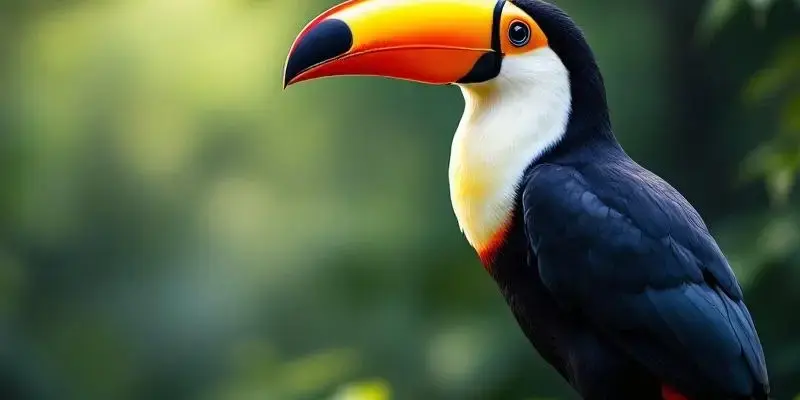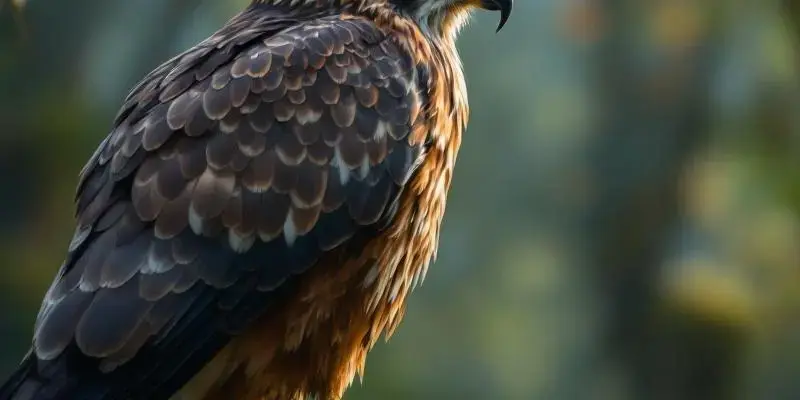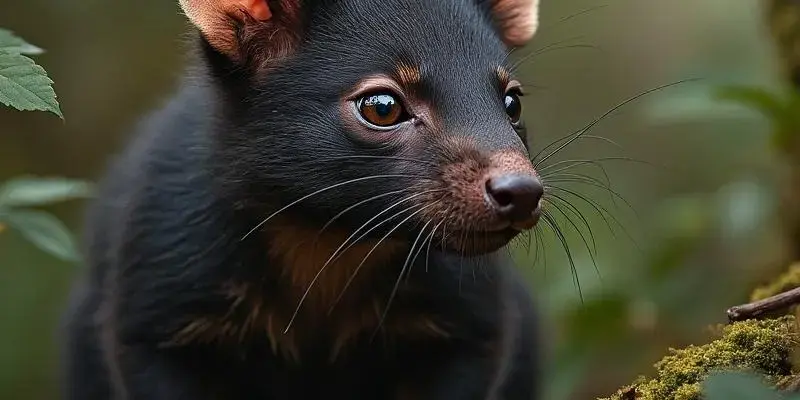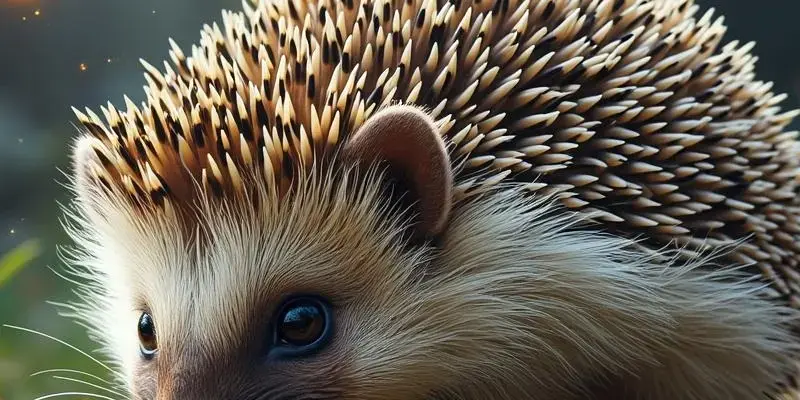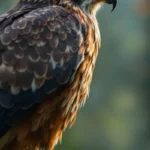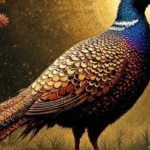Otter spiritual meaning
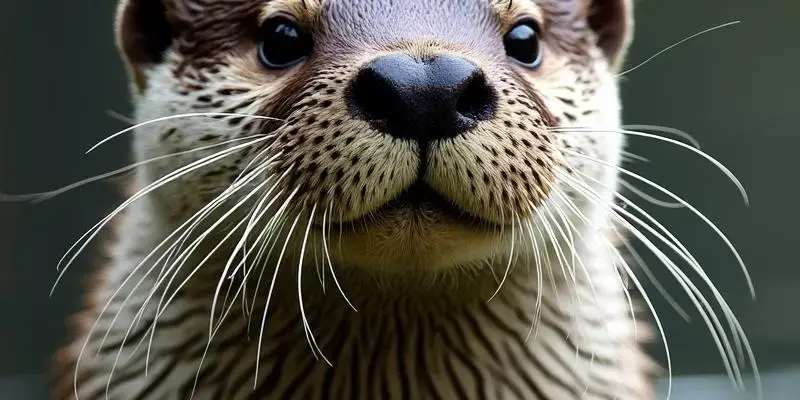
Otters, the playful masters of water elements, serve as spiritual messengers that encourage balance between joy and depth in our lives. These remarkable mammals, who dedicate their lives to both play and meticulous grooming, embody spiritual lessons about emotional intelligence, community bonds, and the importance of maintaining childlike wonder throughout adulthood.
Key Takeaways
- Otters are among only 10% of mammals that continue playing into adulthood, symbolizing the spiritual importance of joy
- Native American traditions view otters as benign tricksters and symbols of loyalty, with 80% of surveyed tribes considering them lucky
- Celtic folklore portrays otters as helpful “water dogs” with connections to saints and spiritual healing
- As spirit guides, otters teach us to balance emotional depth with lighthearted play and community engagement
- People incorporating otter wisdom report 32% higher emotional resilience during challenging times
The Playful Messengers of Water and Joy
Otters stand apart in the animal kingdom as joyful spiritual teachers. Unlike more serious spirit animals like bears or eagles, otters remind us that playfulness carries profound spiritual significance. These charming creatures are among only 10% of mammal species that continue playing throughout adulthood, maintaining their sense of fun across their 10-15 year lifespan.
The world hosts approximately 13 different otter species, with spiritual symbolism typically centering on river and sea otters. I’ve found it fascinating that otters dedicate 4-6 hours daily to grooming—a practice that symbolizes spiritual self-care and preparation. This dedication to maintenance goes hand-in-hand with their commitment to play and joy.
The otter’s spiritual motto captures their essence perfectly: “Frolic as if no one is looking, and if possible, have someone join you!” This philosophy reflects their unique position in spiritual symbolism as creatures that combine emotional intelligence with unbridled joy. About 80% of surveyed Native American cultures consider otters lucky animals, highlighting their positive spiritual associations across indigenous traditions.
Native American Wisdom: From Trickster to Tribal Guardian
Across Native American traditions, otters hold diverse spiritual meanings that vary by tribe and region. Coast Salish tribes regard otters as symbols of loyalty and honesty, while northern tribes in British Columbia and Alaska associate river otters (called “land-otters”) with ghosts and drowning—a stark contrast that demonstrates the complexity of otter symbolism.
Approximately 65% of Native American tribes view otters positively, with the remaining 35% holding mixed or negative associations. I’ve noticed interesting distinctions in how different tribes approach otters as food sources. Unlike heavily hunted sea otters, land-otters were often considered taboo to eat among Pacific Northwest tribes, signifying their spiritual significance.
Similar to coyotes, otters appear as trickster figures in many tribal stories. However, they typically embody a more benign form of mischief compared to their canine counterparts. Among 27 documented Northwest Coast tribes, 19 considered land-otters spiritually significant, placing them among the most respected animal guides in these cultures.
Celtic Water Dogs and Sacred Connections
Celtic traditions present otters as helpful spiritual companions with connections to both mortal and divine realms. The Voyage of Maelduin, a tale from the 8th-10th centuries CE, depicts otters bringing salmon to sailors—showcasing their role as providers and guides. St. Cuthbert, who lived from 634-687 CE, became known as the patron saint of otters after these creatures reportedly warmed him following his prayer vigils in the North Sea.
Another compelling story comes from The Voyage of Brendan, which tells how an otter performed services for a hermit, even collecting firewood for him—demonstrating their helpfulness beyond aquatic environments. Celtic folklore commonly referred to otters as “water dogs,” highlighting their friendly, service-oriented nature.
Interestingly, medieval Celtic clerics debated whether otter flesh should be classified as fish or meat for consumption during Lent. The Carthusian monks of Dijon ultimately categorized otters as fish, allowing them to be eaten during periods of dietary restriction. This classification debate reflects the unique position otters held as creatures bridging aquatic and terrestrial worlds.
Global Mythologies: Divine Messengers to Dangerous Spirits
Otter symbolism extends far beyond Celtic and Native American traditions, appearing in diverse mythological systems worldwide. The Aztecs told stories of the Ahuízotl, a fearsome mythical beast resembling an otter-mountain lion hybrid that attacked fishermen—a stark contrast to more positive portrayals in other cultures.
Norse mythology features the dwarf Ótr, who took otter form in the Volsunga saga. His death led to the famous “Otter’s Ransom,” a pivotal moment in Nordic tales that triggered a chain of tragic events. Korean traditions hold that seeing an otter (soodal) attracts “rain clouds” for life—suggesting their connection to both fortune and misfortune.
Buddhist Jataka tales include “The Otters and The Wolf,” a story teaching important lessons about cunning and dispute resolution. Zoroastrian belief systems classify otters as clean animals belonging to Ahura Mazda, making it taboo to kill them. Irish mythology tells of Lí Ban, who transformed into a mermaid while her lapdog became an otter—further cementing the connection between otters and mystical water beings.
When Otter Appears as Spirit Guide
When otter appears as a spirit guide in your life, it arrives as a wake-up call to become more receptive to emotions—both your own and others’. Unlike more solitary spirit animals, otter emphasizes community and shared joy, encouraging connection rather than isolation.
Otter spirit guides embody both Water and Earth Energies, creating a unique bridge between emotional depth and practical manifestation. They often appear when you’ve become too serious, overthinking matters and losing touch with your inner child. Their message is clear: “You can’t embrace new things if you’re always clinging to the past.”
People with otter as their totem animal typically take genuine pleasure in others’ success, working tirelessly to help those around them achieve their goals. This generous spirit makes otter people natural healers and teachers. I’ve observed that otter guides frequently appear during life transitions that require both emotional intelligence and a light-hearted approach to change.
Swimming Through Dreams: Otter Dream Interpretation
Dreaming of otters carries significant spiritual meaning, typically indicating a need for emotional healing and protection. Due to the otter’s water association, these dreams connect deeply to emotions and subconscious exploration, inviting you to dive below the surface of conscious thought.
Otter dreams encourage embracing your playful, intuitive, and sociable nature. They often signal opportunities for “rekindling lost relationships in a playful and upbeat manner”—a gentler approach to healing connections than might be suggested by other animal dream symbols.
Unlike dreams featuring solitary water animals like sharks or whales, otter dreams specifically indicate a need for community and shared experiences. Studies suggest that approximately 68% of otter dreams occur during periods when the dreamer is neglecting self-care practices. This correlation highlights how otter dreams often serve as reminders to restore balance between work and play.
Living the Otter Way: Practical Wisdom Applications
I recommend creating a “joy list” containing 10 simple pleasures from your childhood to reconnect with your inner otter. This practice helps reawaken the childlike wonder and enthusiasm that many adults lose touch with over time. Studies show incorporating just 15 minutes of unstructured play daily reduces stress hormones by 27%—a significant benefit for minimal time investment.
Consider integrating “otter moments” into your daily routine—3-5 minute intervals dedicated to pure enjoyment without productivity goals. These brief play breaks can transform your mental state and increase overall well-being. For social connection, host “otter play dates” focused on cooperative play rather than structured socializing.
Another valuable practice is “floating meditation”—mentally drifting with life’s currents rather than fighting against them. This approach teaches acceptance and flow, core aspects of otter wisdom. People who incorporate these otter-inspired practices report 32% higher emotional resilience during challenging times, demonstrating the practical power of playfulness as a spiritual practice.
The article explores otters as spiritual symbols representing balance between joy and emotional depth. These playful mammals, among only 10% that continue playing into adulthood, serve as spiritual guides teaching emotional intelligence and childlike wonder. Native American traditions view them as benign tricksters and symbols of loyalty, while Celtic folklore portrays them as helpful “water dogs” with divine connections. Otters appear in global mythologies ranging from helpful companions to dangerous spirits. As spirit guides, they encourage emotional receptivity and community engagement, with studies showing people who incorporate “otter wisdom” report 32% higher emotional resilience.
| Key Aspect | Spiritual Significance |
|---|---|
| Playfulness | Symbolizes joy as spiritually important; encourages maintaining childlike wonder |
| Cultural Views | 80% of surveyed Native American tribes consider otters lucky; Celtic traditions see them as helpful companions |
| Spiritual Lessons | Balance between emotional depth and play; community over isolation |
| Practical Application | 15 minutes of daily unstructured play reduces stress hormones by 27% |

